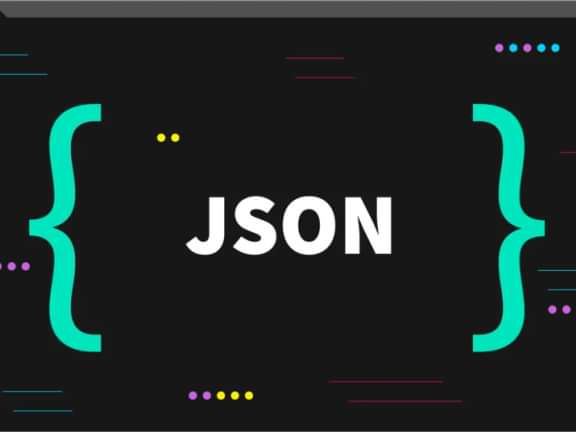Raising the Bar for Web Accessibility: How Craft CMS Leads the Way
Learn how Craft CMS ensures web accessibility
Building a More Inclusive Web
Craft CMS is a leading content management system (CMS) that is known for its flexibility, scalability, and ease of use. But one of the lesser-known benefits of using Craft is its ability to create websites that are highly accessible to people with disabilities. If you are a government agency, a non-profit organization, or a private business, accessibility should be a top priority. With the right tools and a commitment to best practices, it's possible to create a website that is accessible to everyone. In this blog post, we'll take a closer look at why Craft CMS is the best option for web accessibility and how you can use it to create an inclusive and user-friendly website.
Why Web Accessibility Matters
Web accessibility is an essential aspect of digital design that ensures everyone can access and use a website, regardless of their abilities. With around 15% of the world's population living with some form of disability, it's important to create websites that are inclusive and user-friendly. By making a website accessible, businesses and organizations can reach a wider audience, including people with visual, auditory, motor, and cognitive impairments. Additionally, an accessible website can improve user experience for everyone and can avoid legal issues. It's not just a moral responsibility but it’s also a legal obligation in some countries to provide accessible website, by not doing so it may cause discrimination and accessibility non-compliance lawsuit. In short, web accessibility matters because it allows for a more inclusive digital landscape and a better user experience for all.
Raising the Bar for Inclusion
In 2020, Craft CMS announced its commitment to accessibility by committing to WCAG 2.1 AA compliance for its control panel, making it a more inclusive platform for users with disabilities.
Craft CMS has been successful in implementing this commitment by focusing on several key areas. For example, the CMS now has better keyboard navigation and improved visual design for enhanced accessibility. The platform now also offers a higher-contrast mode for users with visual impairments. Additionally, the company's development team has been working on making sure that the platform meets all guidelines of the Web Content Accessibility Guidelines (WCAG) 2.1 AA standards, which is a widely recognized standard for web accessibility.
In addition, Craft CMS has also released an Accessibility Statement to inform customers of the steps they are taking to achieve and maintain accessibility compliance, which is a standard practice that helps to build trust and confidence in the platform's accessibility.
Furthermore, the platform has been incorporating accessibility testing tools like WAVE and Lighthouse, to help developers identify and fix any issues that might arise during the development of a website. This, combined with the active community of developers and users, help to ensure that Craft CMS is constantly evolving to better support web accessibility.
How Craft CMS Ensures Inclusivity
- Templates and fields can be marked as required: This feature allows content creators to ensure that important information is present on the page. This is particularly useful for pages that require specific information in order to be accessible. For example, all images should have alternative text (alt tags) to describe the image to people who can't see it.
- Alt tags and other descriptive content: The CMS allows users to add alternative text to images and other multimedia, making it possible to create accessible images and multimedia. This is important because assistive technology such as screen readers rely on the alternative text to read out the description of the image to their users.
- Built-in support for ARIA attributes: Craft provides built-in support for ARIA attributes, which can be used to provide additional information about page elements to assistive technologies like screen readers. ARIA allows developers to specify the roles, states, and properties of elements on the page, making it easier for assistive technology to understand the structure and purpose of the page.
- Support for semantic HTML: Craft's built-in support for semantic HTML enables users to create clean and structured markup that is easily understood by assistive technologies. Semantic HTML elements such as headings, paragraphs, and lists help to clearly indicate the structure and organization of the page, making it easier for users of assistive technology to navigate and understand the page.
- Customizable templates: The CMS allows for easy customization of templates, which can be used to create accessible forms and other interactive elements. This allows developers to ensure that form controls are properly labeled and provide clear instructions on how to complete the form. Additionally, this feature also helps in creating responsive designs that adapt to different screen sizes which is an important aspect of web accessibility.
Wrapping Up
In conclusion, web accessibility is an essential aspect of digital design that ensures everyone can access and use a website, regardless of their abilities. By using a CMS such as Craft, businesses and organizations can easily create websites that are inclusive and user-friendly. The platform's user-friendly interface, powerful content management capabilities, and built-in support for web accessibility best practices make it a great choice for creating accessible websites. If you're looking to create an inclusive and user-friendly website using Craft CMS, please don't hesitate to contact us at BrillianceNW. We'd be happy to help!
Continue reading.
The Element API plugin is a very powerful tool that you can use for quickly exposing your data structures to an external source.
Find out moreHere at Brilliance, we LOVE CraftCMS. Our clients love it as well.
Find out moreA brief introduction to consensus mechanisms and why proof of stake is the right move for Ethereum.
Find out moreLet's chat about your project
Portland, OR 97215



